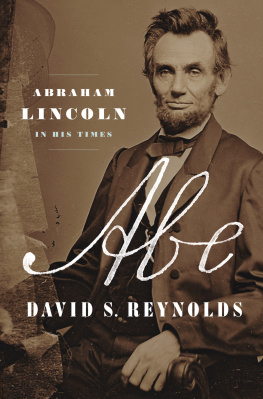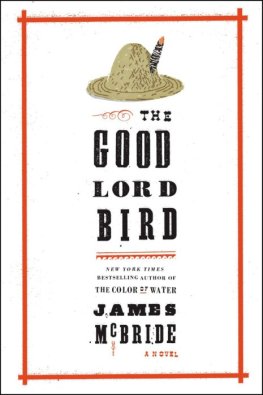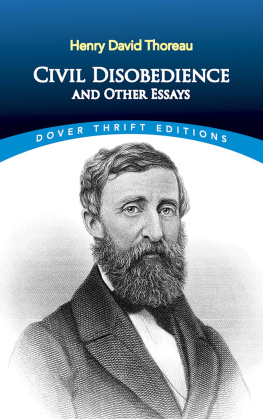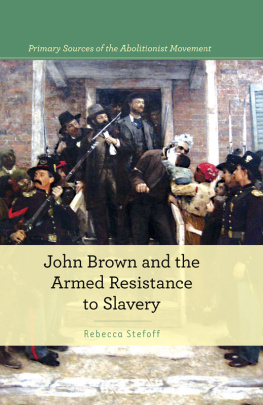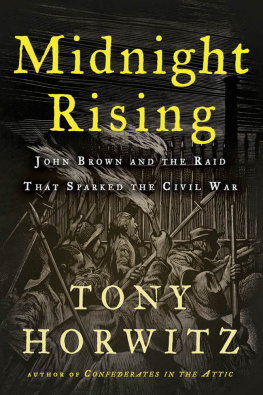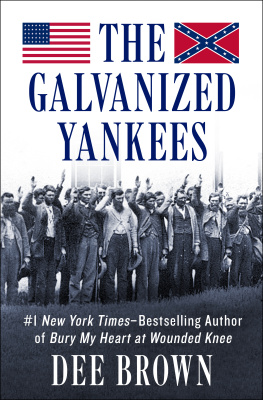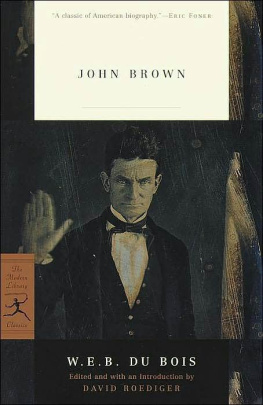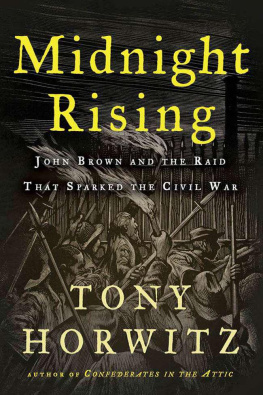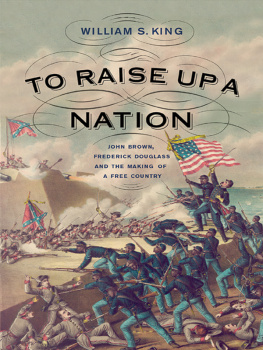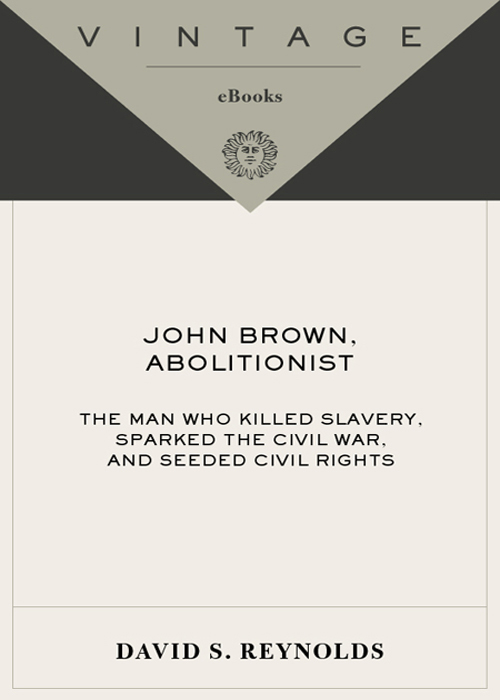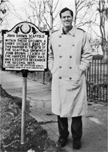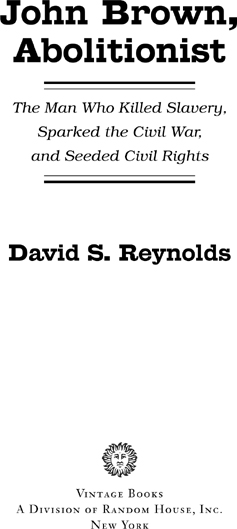Praise for David S. Reynoldss
John Brown, Abolitionist
Winner of the Gustavus Myers Award
Brilliant. It took nine decades of struggle for America to approach John Brown's goal of civil rights for all ethnic minorities. Even today the goal is not fully realized.
The Seattle Times
Absorbing. For all its wealth of detail and scrupulous attempts at balance, [John Brown, Abolitionist] has a shockingly simple message: Far better to have future generations complain about your methods than condemn you for doing nothing.
The New York Times Book Review
This well-researched book peels away some of the extreme interpretations of Brown and offers a generally balanced and objective assessment of why he should matter.
St. Louis Post-Dispatch
Great sensitivity, thorough research, and some marvelous narrative.
The Washington Post Book World
[Reynolds] achieves a nuanced portrait of Brown, in part through a careful reading of his contemporaries, especially the Transcendentalists. Reynolds restores them to life in their own age. He does the same for Brown himself, answering the main questions about him with clarity and confidence.
The Baltimore Sun
A masterful exploration of a fascinating, flawed character and his cultural impact.
The Atlanta Journal-Constitution
Absorbing, well written and beautifully documented.
The Nation
A fascinating look at a man defined by his hatred of slavery.
Pittsburgh Tribune-Review
Formidable. Read this book, and you'll never react quite the same way to that old dirge, John Brown's body lies a-moldering in the grave.
The Miami Herald
Lively. A splendid re-examination of one of the seminal storiesand complex menthat shaped the United States we know today.
The Plain Dealer
One of the most compelling reads in antebellum history in the past several years. After reading Reynolds stimulating book, few will disagree that Brown was an important figure in the coming of the Civil War.
New England Quarterly
DAVID S. REYNOLDS
John Brown, Abolitionist
David S. Reynolds is Distinguished Professor of English and American Studies at the Graduate Center and Baruch College of the City University of New York. His books include Walt Whitman's America: A Cultural Biography, winner of the Bancroft Prize and the Ambassador Book Award and finalist for the National Book Critics Circle Award, and Beneath the American Renaissance, which won Phi Beta Kappa's Christian Gauss Award. He lives on Long Island, New York.
A LSO BY D AVID S. R EYNOLDS
Walt Whitman
Walt Whitman's America: A Cultural Biography
Beneath the American Renaissance: The Subversive Imagination
in the Age of Emerson and Melville
George Lippard
Faith in Fiction: The Emergence of Religious Literature
in America
E DITED AND C OEDITED W ORKS
Leaves of Grass, 150th Anniversary Edition,
by Walt Whitman
Venus in Boston and Other Tales of Nineteenth-Century Life,
by George Thompson (with Kimberly Gladman)
A Historical Guide to Walt Whitman
The Serpent in the Cup: Temperance in American Literature
(with Debra J. Rosenthal)
The Quaker City, or The Monks of Monk Hall, by George Lippard
George Lippard, Prophet of Protest: Writings of an
American Radical, 1822-1854
To Suzanne and Haig,
for their encouragement and support
Contents
18.
Preface
A word about my subtitle. The Abolitionist John Brown (1800-1859) did not end American slavery. The Thirteenth Amendment, ratified by the states six years after his death, did that. But he can be said to have killed slavery in the way described by his contemporary Wendell Phillips, who said that after Brown's raid on Harpers Ferry, Virginia, slavery was like a fallen pine, still green but dying. In a speech at Brown's funeral Phillips declared, John Brown has loosened the roots of the slave system; it only breathes,it does not live,hereafter. Kill is an apt word for Brown, who went to murderous extremes, unlike other Abolitionists, most of whom were pacifists who disavowed violence.
By the same token, Brown did not cause the Civil War, which resulted from a host of social, political, and cultural forces. But he sparked the war to a degree that no other American did. Begin is the word Frederick Douglass chose: If John Brown did not end the war that ended slavery, he did, at least, begin the war that ended slavery.
The immediate trigger of the war, of course, was the South's secession after the election of Lincoln. But the choice of Lincoln itself was influenced by the hostilities inflamed by Brown. The Republicans, tarred by their opponents with responsibility for Harpers Ferry, tried to calm sectional animosities by choosing the moderate dark horse, Lincoln, over more controversial candidates. Southern extremists, meanwhile, manipulated the panic over John Brown's raid to add fuel to the anti-Northern frenzy that led to the splintering of Lincoln's opponents into three parties, thereby ensuring his election and bringing on secession.
The polarized passions created by Brown's attack on Harpers Ferry, then, contributed to the election of Lincoln. One might posit that a Lincoln presidency would not have existed without John Brown.
Lincoln at first shrank from waging a war for emancipation, which he said would be a John Brown raid, on a gigantic scale. But is there any question that Lincoln and his generals did not, in effect, end up following Brown's lead by condoning God-ordained violence? Think about Sherman's march, and then reconsider those who criticize Brown for using violence in the name of a higher political and religious cause.
John Brown planted seeds for the civil rights movement by making a pioneering demand for complete social and political equality for America's ethnic minorities. To be sure, many other Americans have contributed to civil rights. But only one white reformer lived continuously among blacks, penned a revised American constitution awarding them full rights, and gave his life in a violent effort to liberate the slaves. That's why the Second Niagara Movement (which became the NAACP), the forerunner of the civil rights movement, hailed Brown as one who had no predecessors, and can have no successors. And that's why no other white person in American history has been more beloved over time among African Americans than John Brown.
It may be discomfiting to think that some of America's greatest social liberties sprang in part from a man who can be viewed as a terrorist. But John Brown was a man not only of violence but of eloquence and firmness of principle. His widely reprinted declarations against slavery impressed the intellectual leaders Ralph Waldo Emerson, who said Brown's speech to Virginia court was as great as the Gettysburg Address, and Henry David Thoreau, who declared that Brown's words were more powerful than his rifles.


